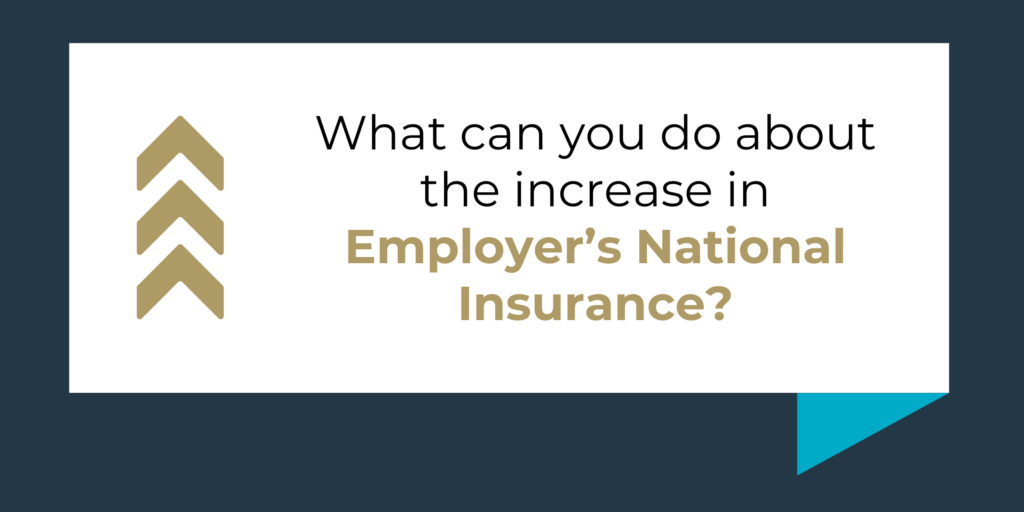Increases in Employer’s National Insurance in 2025/26 and can they be mitigated?

One of the big talking points from the recent Autumn Budget was the announcement that employer’s National Insurance (NI) will rise from 13.8% to 15% in the upcoming 2025/26 tax year.
Not only has the rate increased, but it was also announced that the threshold that employers begin to pay employer’s National Insurance for their employees would be reduced from £9,100 to £5,000.
These two changes will lead to increases in National Insurance for most employers and it is therefore key for employers to be aware of the impact of the changes.
Please see the below table detailing the increase in employer’s National Insurance at different salary levels following the changes:
| Annual salary | 2024/25 Employer’s NI | 2025/26 Employer’s NI | Increase in Employer’s NI |
| £10,000 | £124 | £750 | £626 |
| £20,000 | £1,504 | £2,250 | £746 |
| £30,000 | £2,884 | £3,750 | £866 |
| £50,000 | £5,644 | £6,750 | £1,106 |
| £75,000 | £9,094 | £10,500 | £1,406 |
| £100,000 | £12,544 | £14,250 | £1,706 |
This table shows the additional employer’s National Insurance for a single employee, therefore employers with multiple employees on the payroll will have far greater increases in National Insurance.
Can the increase in Employer’s National Insurance be mitigated?
In general, employer’s National Insurance will increase for most employers but steps can be taken to mitigate its impact.
It was announced in the Budget that the employment allowance will increase from £5,000 to £10,500 in 2025/26, therefore saving £5,500 of employer’s National Insurance for eligible employers. This means that the first £10,500 of employer’s National Insurance in the 2025/26 will not need to be paid to HMRC. For businesses with a small number of employees on lower salaries, this may completely mitigate any increase in employer’s National Insurance.
Employers should review whether they were previously eligible for employment allowance and if eligible, check that they have claimed the allowance within their payroll submissions in earlier years. HMRC allows employers to backdate employment allowance claims for the previous 4 years and can result in reclaims of up to £20,000 if not previously claimed.
Consider offering salary sacrifice schemes, such as pension contributions and for electric cars. Under these schemes, employees sacrifice part of their salaries in return for pension contributions or benefits. The amount of salary sacrificed is not subject to income tax and National Insurance, therefore saving on Employer’s National Insurance.
Finally, although little consolation, it is worth remembering that employer’s National Insurance is an allowable expense for corporation tax and income tax purposes. Therefore, tax relief will be provided within the end of year corporation tax return or partnership tax return. This relief will be between 19-25% for companies and 20-45% for partnerships, depending on profit levels.
Speak to your local Perrys branch to discuss the impact of the employer’s NI increases on your business and possible steps to mitigate the increases.





